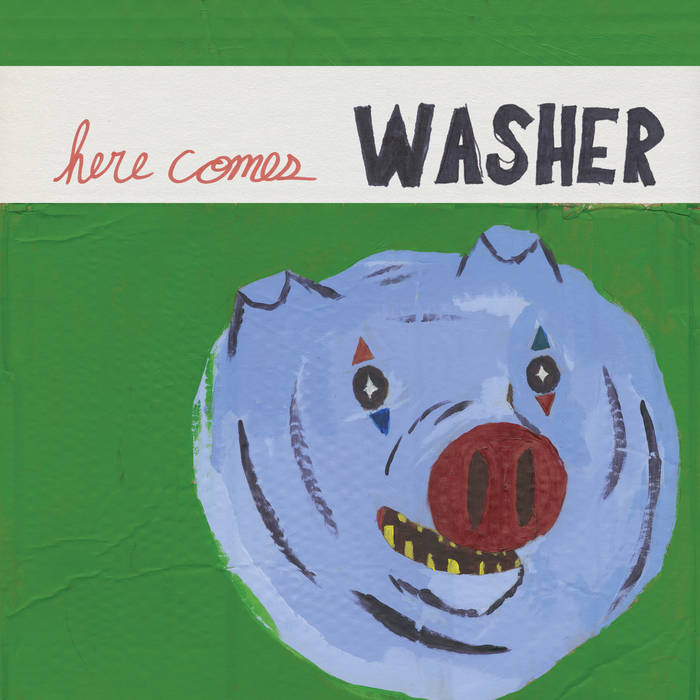Album Review: Here Comes Washer by Washer
Courtesy of ECB&B/Exploding in Sound Records
The album cover of Washer’s debut album, “Here Comes Washer.”
February 3, 2016
In the world of two piece rock groups, two different types exist: the more traditionalist, guitar and drums duo type (The White Stripes, The Black Keys, etc) and the more experimentalist, bass and drums duo type (Death from Above 1979, Lightning Bolt, etc). Washer manages the feat of being both, often within the span of a few minutes. While some of the melodies seem directly imported from some long lost Weezer album, Washer is just as prone to dropping the floor out from under the listener and taking an unexpected twist.
The album kicks off with the Pixies-esque “Eyelids”, which goes along calmly before being interrupted by a distorted bass riff. The album spirals off into wildly varied directions after that, from the Pinkerton-era Weezer thrash of “Beansy”, to the gentle, classic pop melody of “This Land”, to the breathtakingly doomy verses of “Got Drunk and Ate the Sun.” The album pulls off such an impressive juggling act with only the most basic elements. Guitarist/bassist/singer Mike Quigley leaves his instruments unadorned with effects, only occasionally adding in a bone-crushing layer of distortion to the strings which, in conjunction with his bold vocals, creates a spell-binding effect. Drummer Kieran McShane’s style can only be described as simply intricate; he somehow mixes more complex rhythms and fills with a vital sense of urgency not often found in more technical drummers.
None of this would matter if Washer’s music had no meaning behind it, but Quigley manages to fill each line with sincerity. Even though few songs break the 3-minute mark, or even the 2-minute mark, Quigley’s voice conveys emotion wonderfully, and the words are worth listening to even if they can be a little hard to hear at times. “Safe Place” addresses the violence sometimes found in more underground music scenes, while “Hallmark” addresses nostalgia for the simpler times experienced as a child.
This brings me to what I consider to be the centerpiece of the album: “Pet Rock vs. Healing Crystal.” A rumination on faith and coping mechanisms, the song exemplifies exactly what makes Washer so great. The melody strikes a perfect balance between dreamy and immediate, beginning with fairly gentle guitars before eventually building into a crescendo towards the end. The lyrics are empathic towards the subjects, one with a pet rock and the other with a healing crystal, saying “It’s a tightrope to walk / to validate yourself and / not fall prey to someone’s / monetary demands.” The song is interesting, catchy, and, most importantly, meaningful. If this is Washer’s entrance, I cannot wait to see where they go next.









